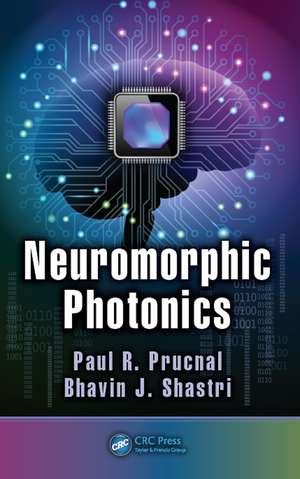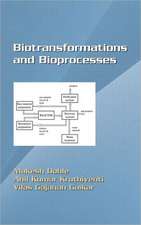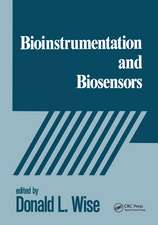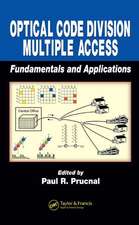Neuromorphic Photonics
Editat de Paul R. Prucnal, Bhavin J. Shastrien Limba Engleză Hardback – 30 mai 2017
Preț: 1807.51 lei
Preț vechi: 2204.29 lei
-18% Nou
Puncte Express: 2711
Preț estimativ în valută:
345.88€ • 369.85$ • 288.38£
345.88€ • 369.85$ • 288.38£
Carte tipărită la comandă
Livrare economică 18 aprilie-02 mai
Preluare comenzi: 021 569.72.76
Specificații
ISBN-13: 9781498725224
ISBN-10: 1498725228
Pagini: 444
Ilustrații: 355
Dimensiuni: 156 x 234 x 27 mm
Greutate: 0.96 kg
Ediția:1
Editura: CRC Press
Colecția CRC Press
ISBN-10: 1498725228
Pagini: 444
Ilustrații: 355
Dimensiuni: 156 x 234 x 27 mm
Greutate: 0.96 kg
Ediția:1
Editura: CRC Press
Colecția CRC Press
Cuprins
Neuromorphic Engineering. Primer on Spike Processing and Excitability. Primer on Photonics. Spike Processing with SOA Dynamics. Excitable Laser for Unified Spike Processing. Semiconductor Photonic Devices as Excitable Processors. Silicon Photonics. Weighted Photonic Network Integration. Photonic Weight Banks. Processing-Network Node. System Architecture. Principles of Neural Network Learning. Photonic Reservoir Computing. Neuromorphic Platforms Comparison.
Notă biografică
Paul R. Prucnal Paul Prucnal is a Professor of Electrical Engineering at Princeton University. In 1988, he joined the faculty at Princeton University, where he served as the Founding Director of Princeton's Center for Photonics and Optoelectronic Materials, and is currently the Director of the Center for Network Science and Applications. He has authored or co-authored more than 350 journal papers and book chapters and holds 22 U.S. patents. He is a Fellow of both the Optical Society of America (OSA) and the Institute of Electrical and Electronics Engineers (IEEE), for his contributions to the field.
Bhavin J. Shastri is currently an Associate Research Scholar at Princeton University, Princeton, NJ, USA. His research interests include: beyond-CMOS and More-than-Moore devices; excitable (graphene) lasers; programmable photonic integrated circuits; photonic interconnects; beyond von Neumann architectures; ultrafast cognitive (neuromorphic) computing; photonic spike processing; and high-speed RF circuits. Dr. Shastri is Member of the Institute of Electrical and Electronics Engineers (IEEE) and the Optical Society of America (OSA).
Bhavin J. Shastri is currently an Associate Research Scholar at Princeton University, Princeton, NJ, USA. His research interests include: beyond-CMOS and More-than-Moore devices; excitable (graphene) lasers; programmable photonic integrated circuits; photonic interconnects; beyond von Neumann architectures; ultrafast cognitive (neuromorphic) computing; photonic spike processing; and high-speed RF circuits. Dr. Shastri is Member of the Institute of Electrical and Electronics Engineers (IEEE) and the Optical Society of America (OSA).
Recenzii
"Photonic neuromorphic processing is a hot topic, and as such this book is very timely. It serves as an excellent introduction to this exciting field and the extremely relevant work done by the authors."
— Peter Bienstman, Ghent University, Belgium
"The authors follow a very structured and well-thought approach, allowing novices to the field to learn about the different aspects involved in this interdisciplinary concept without having to go to specialized literature in the individual fields, and experts to find details and inspiration regarding methods, devices and technologies. The authors introduce the topic from different perspective with a unique in-depth knowledge. The covered aspects, as well as the extended list of up-to-date references, are impressive. Overall, the authors present not only the state-of-the-art but, moreover, provide a fascinating perspective for future research. This is a must-have book for everyone working in photonic information processing."
— Ingo Fischer, Institute for Cross-Disciplinary Physics and Complex Systems IFISC (UIB-CSIC), Palma de Mallorca, Spain
"The material is well presented, and sufficiently allows a non-technical reader to familiarize him/herself with the topic. Simultaneously, the book provides details for a technical person in the field."
—Volker Sorger, The George Washington University, Washington D.C., USA
"Beautifully edited with figures in color, the text is written in a clear manner, and contains references at each chapter’s end. This book is a must for anybody working in modern optics, since it describes a new area of research in photonics dealing with analogies between optical and brain computations."
—Optics & Photonics News, September 2017
— Peter Bienstman, Ghent University, Belgium
"The authors follow a very structured and well-thought approach, allowing novices to the field to learn about the different aspects involved in this interdisciplinary concept without having to go to specialized literature in the individual fields, and experts to find details and inspiration regarding methods, devices and technologies. The authors introduce the topic from different perspective with a unique in-depth knowledge. The covered aspects, as well as the extended list of up-to-date references, are impressive. Overall, the authors present not only the state-of-the-art but, moreover, provide a fascinating perspective for future research. This is a must-have book for everyone working in photonic information processing."
— Ingo Fischer, Institute for Cross-Disciplinary Physics and Complex Systems IFISC (UIB-CSIC), Palma de Mallorca, Spain
"The material is well presented, and sufficiently allows a non-technical reader to familiarize him/herself with the topic. Simultaneously, the book provides details for a technical person in the field."
—Volker Sorger, The George Washington University, Washington D.C., USA
"Beautifully edited with figures in color, the text is written in a clear manner, and contains references at each chapter’s end. This book is a must for anybody working in modern optics, since it describes a new area of research in photonics dealing with analogies between optical and brain computations."
—Optics & Photonics News, September 2017
Descriere
This book will aim to provide a complete treatment of neuromorphic computing spanning from the theoretical to experimental explorations.





